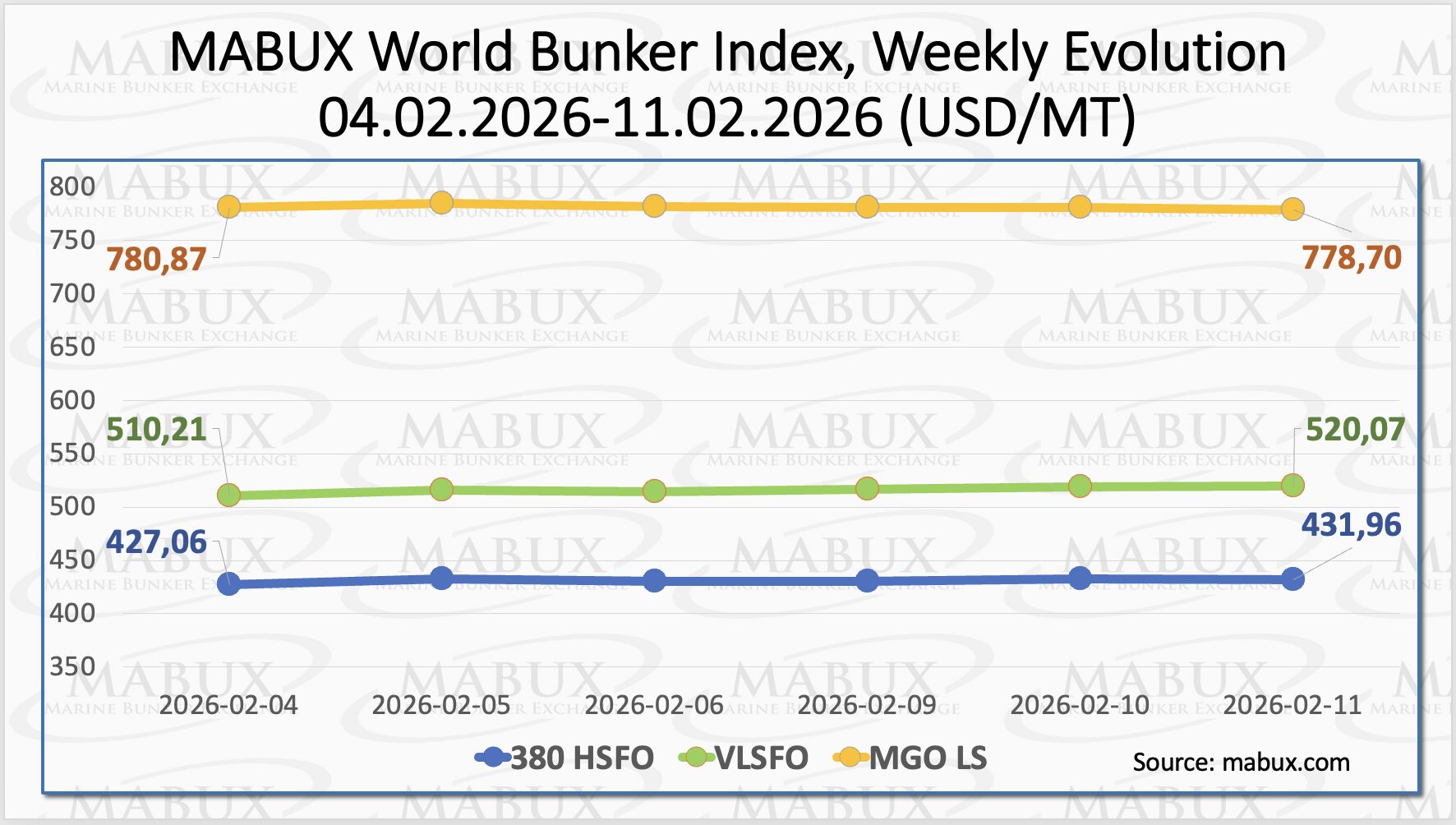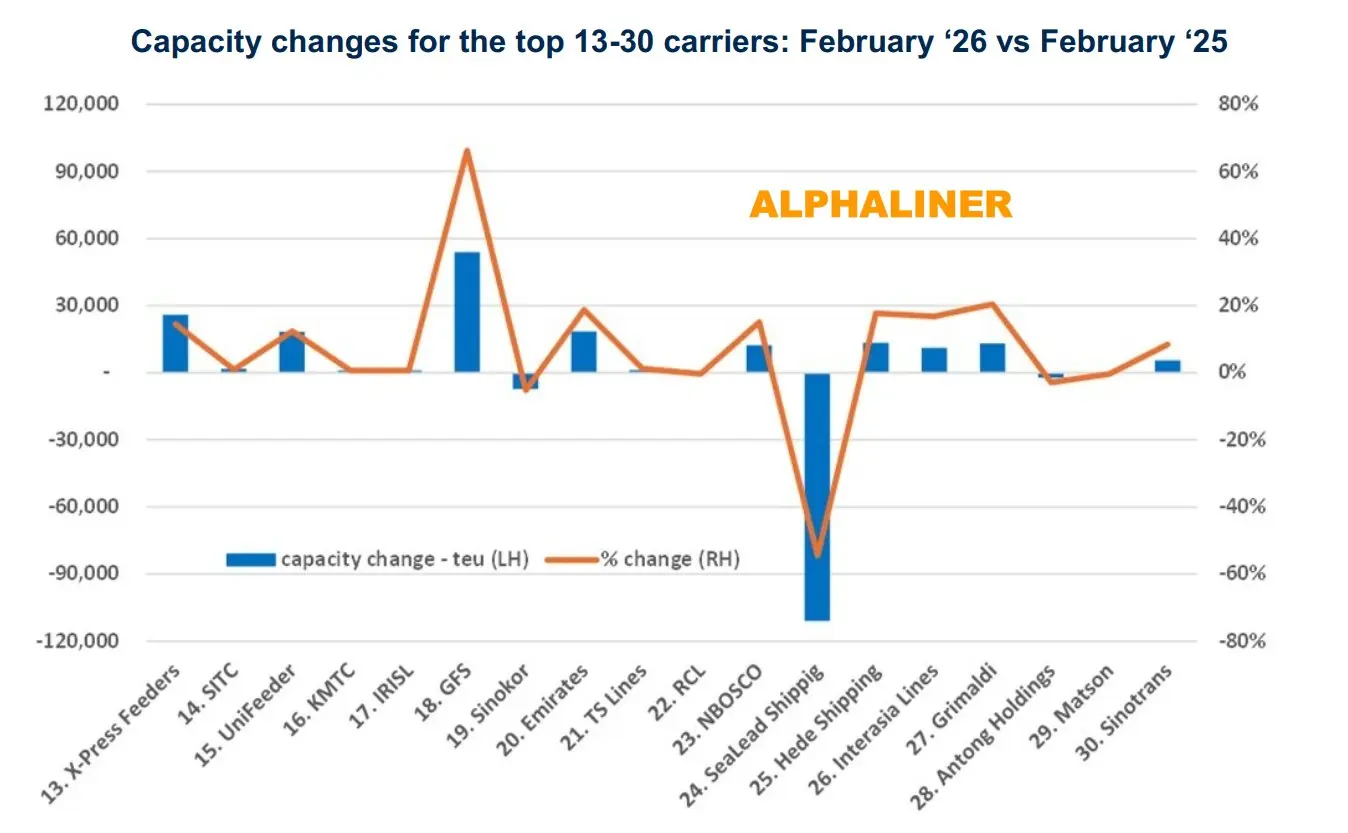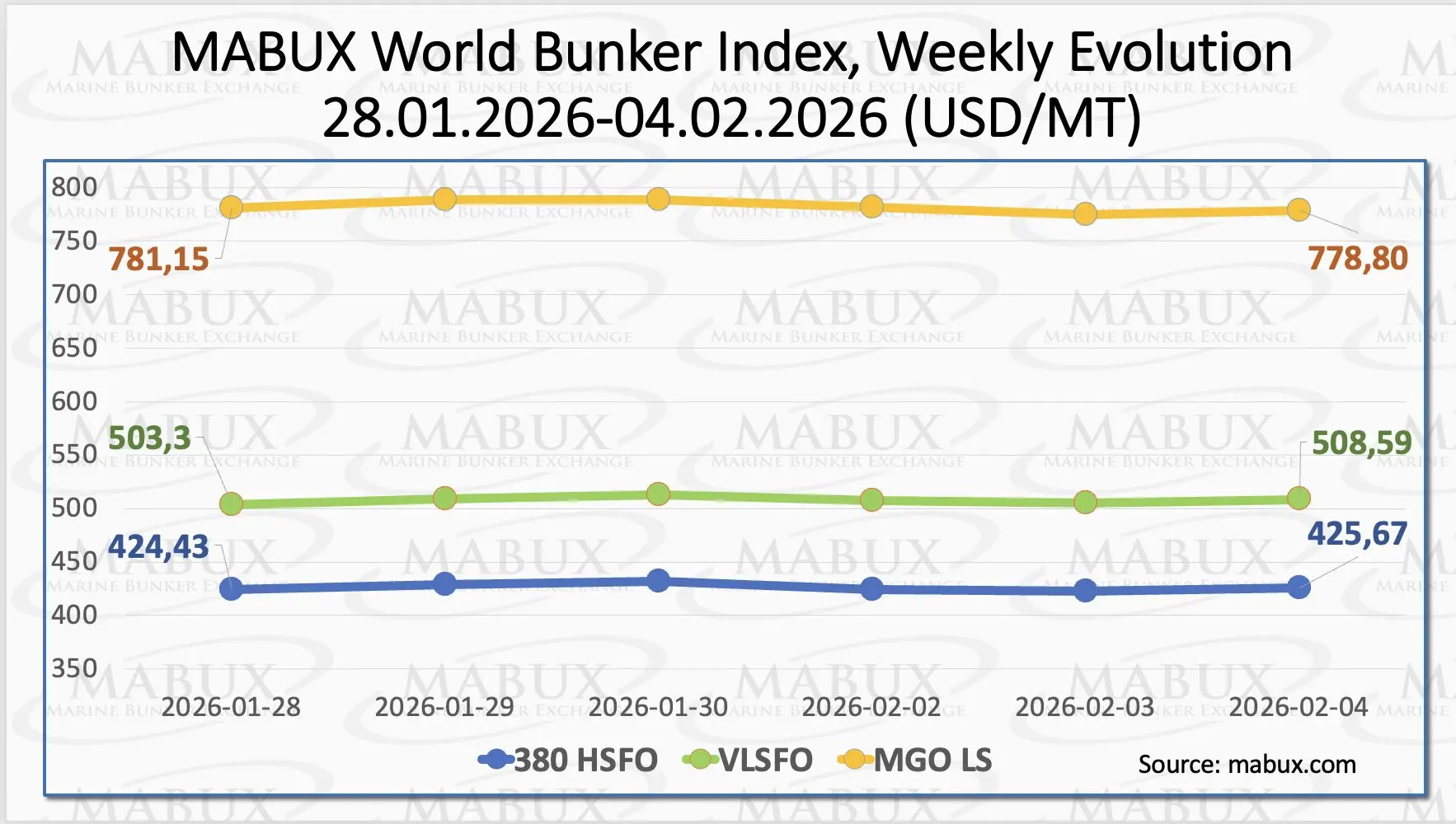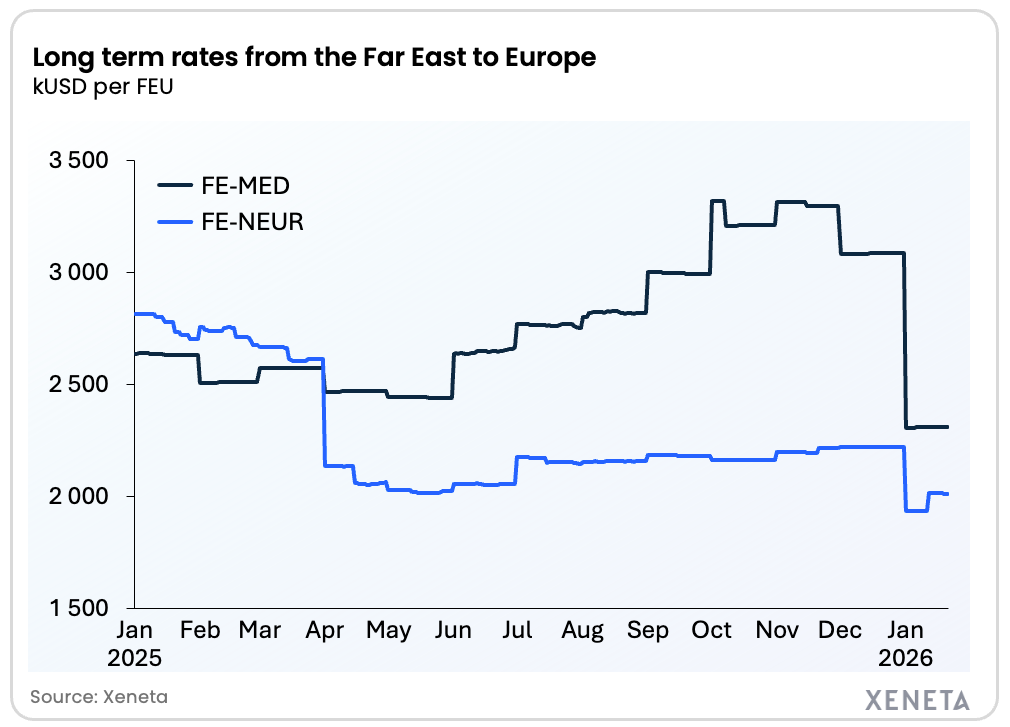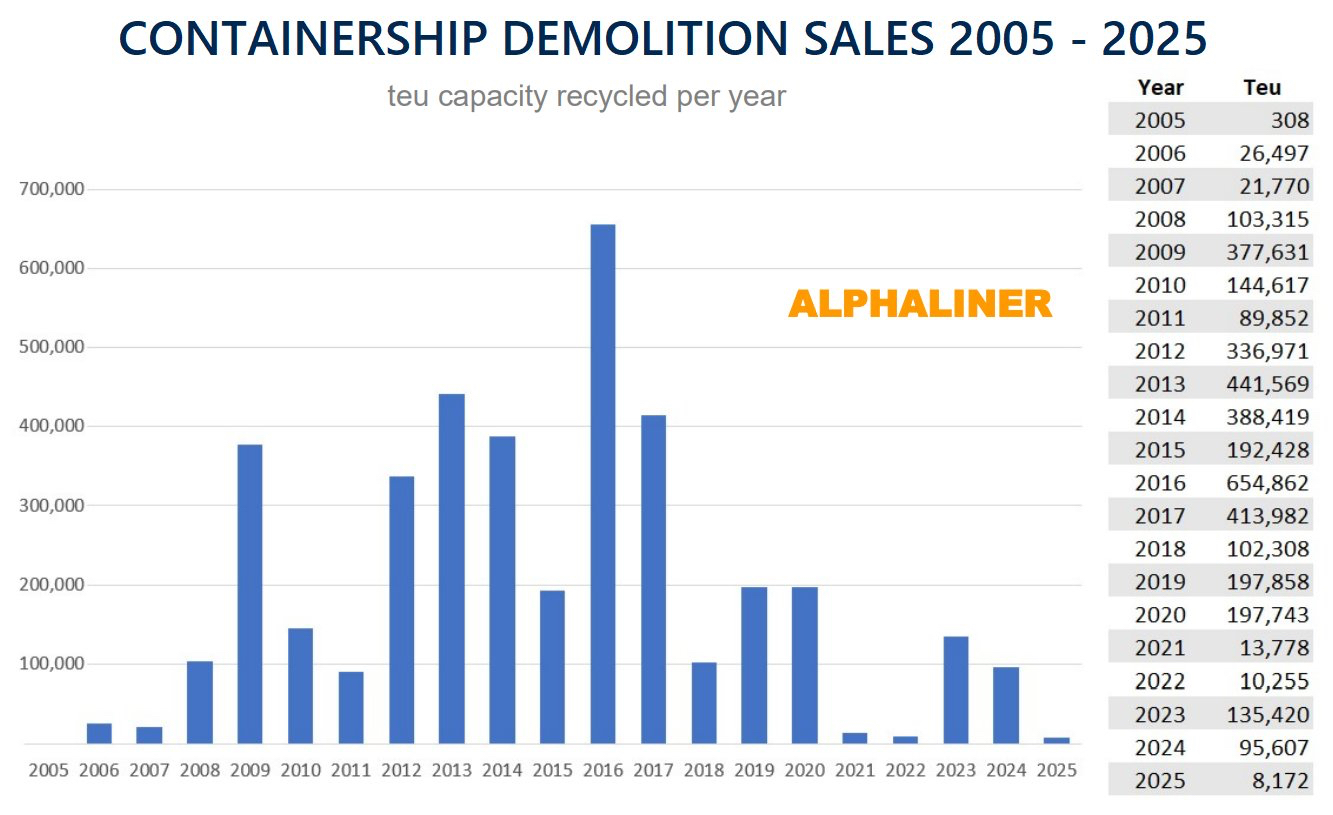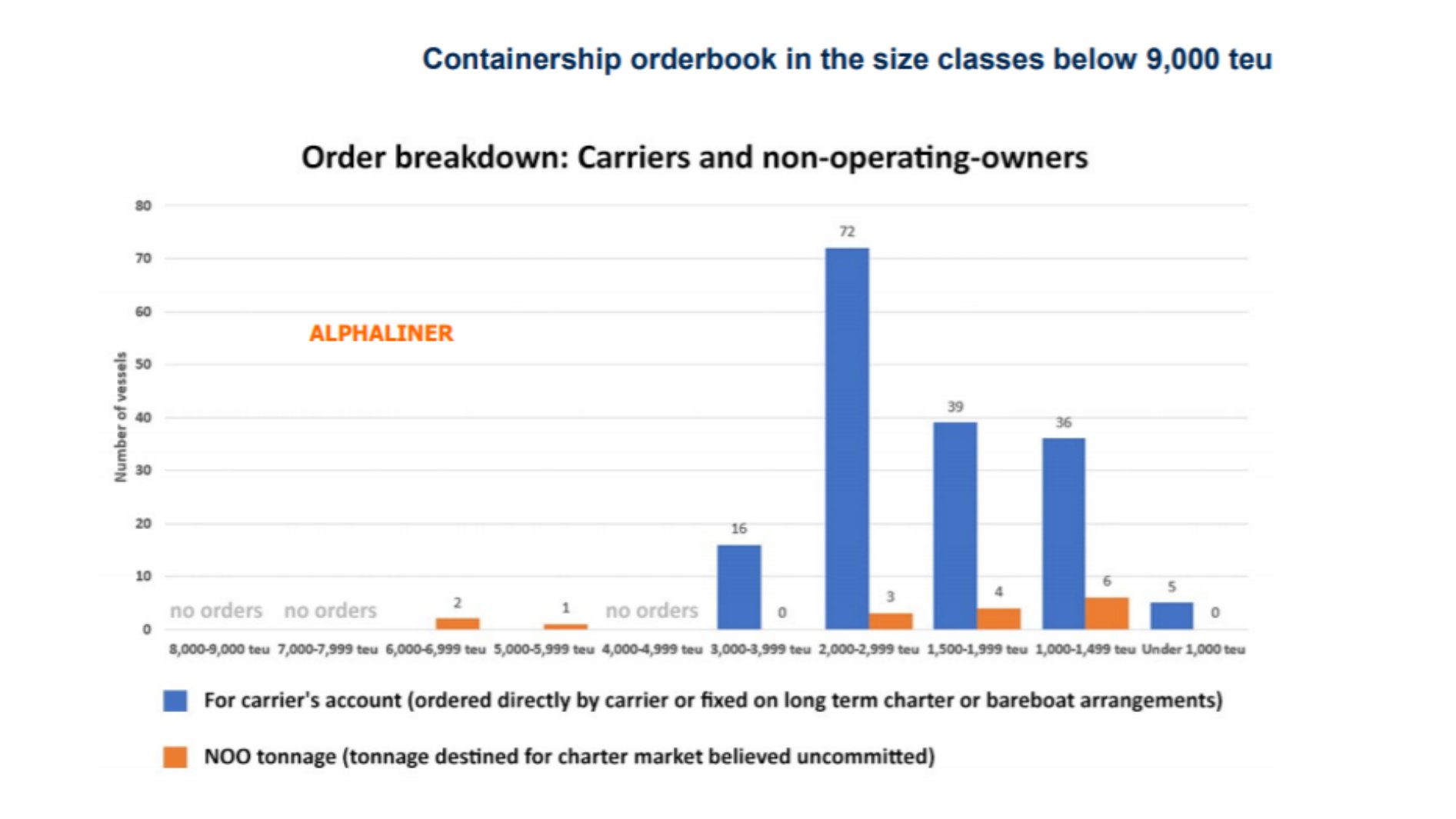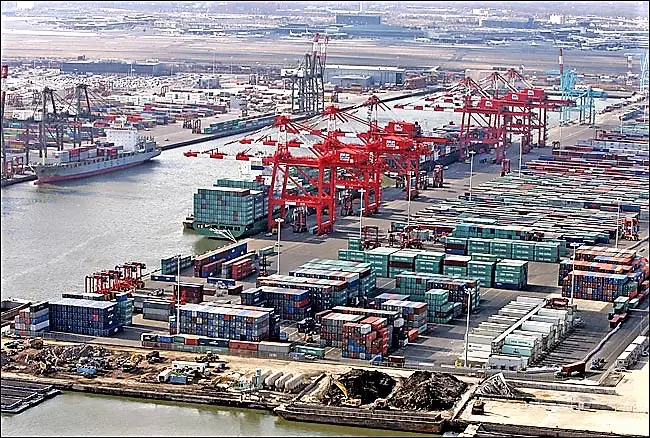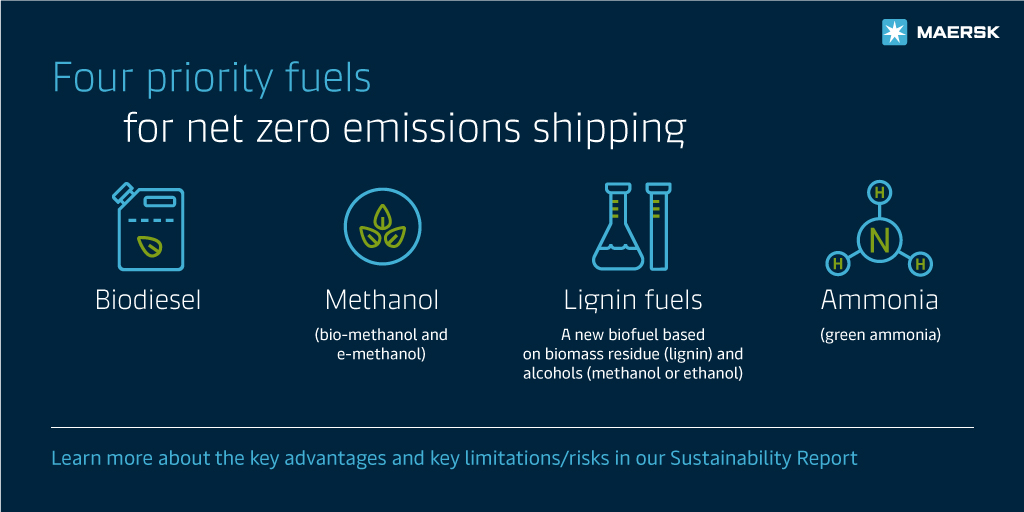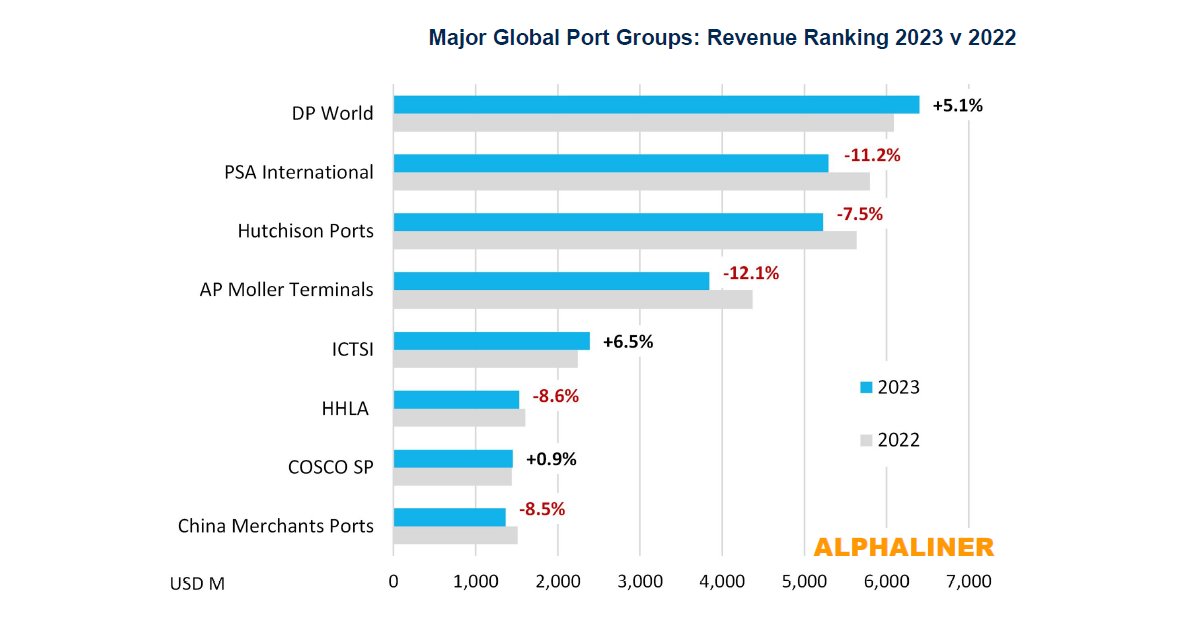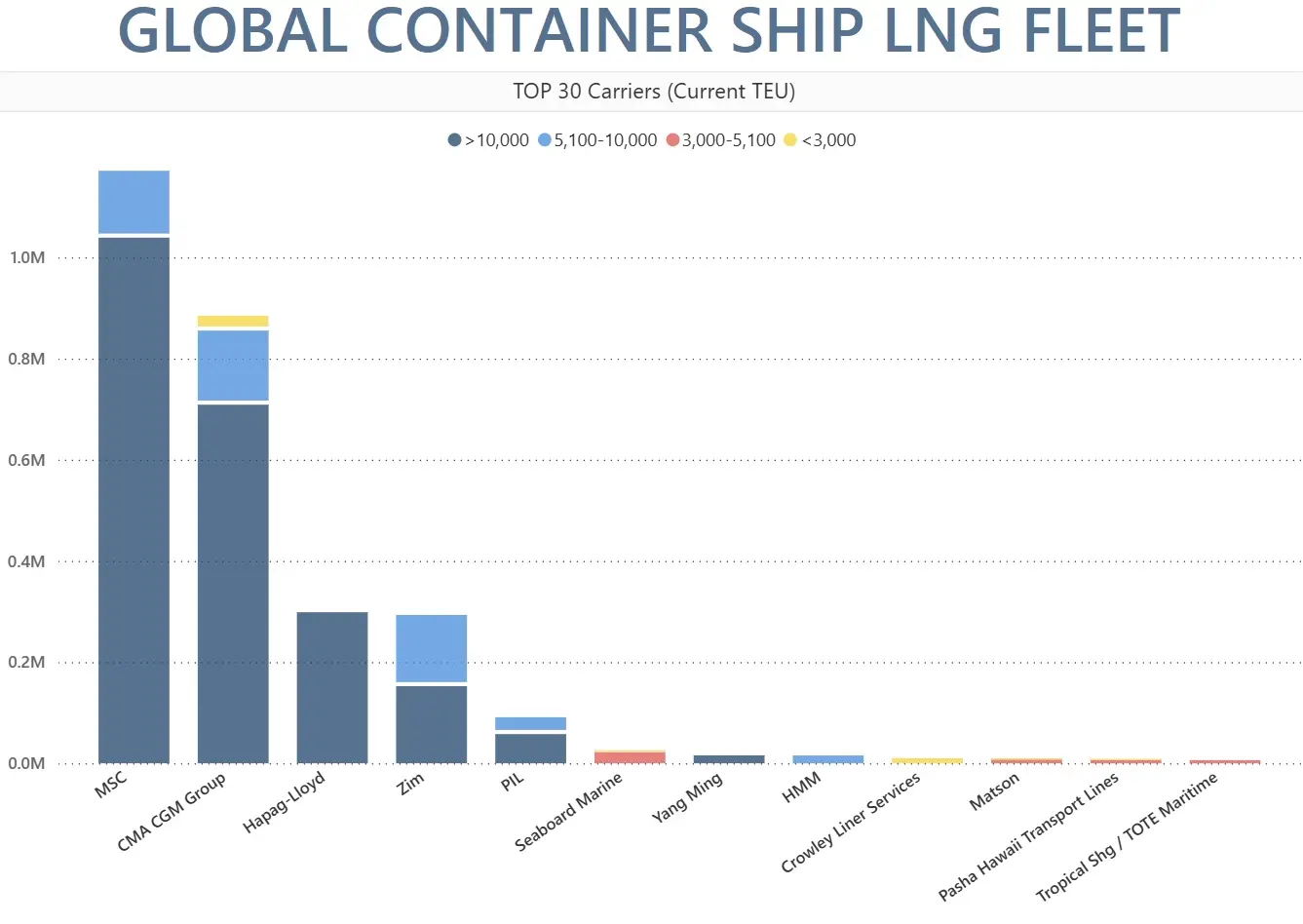
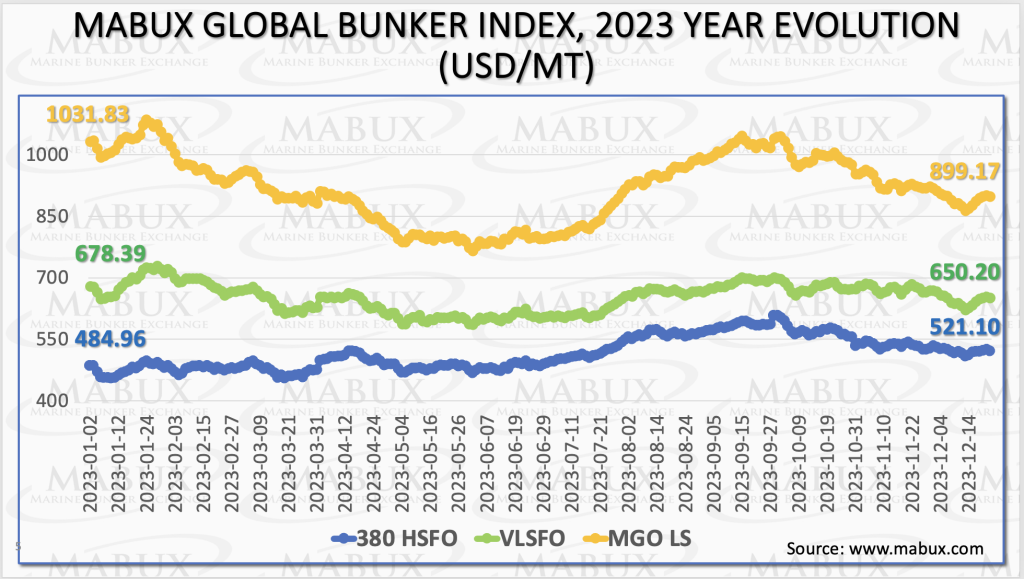
The Global bunker market continued its recovery in 2023 with a moderate correction downwards following the peak values of 2022.
As of December 25, 2023, the global index 380 HSFO demonstrated a notable increase of 36.14 USD, rising from 484.96 USD/MT at the beginning of the year to 521.10 USD/MT. Conversely, the Index VLSFO saw a decrease of 28.19 USD, declining from 650.20 USD/MT to 678.39 USD/MT over the year.
The MGO Index experienced the most significant drop, decreasing by 132.66 USD, from 1031.83 USD/MT to 899.17 USD/MT. Despite lingering volatility, the overall state of the bunker market remained relatively stable.
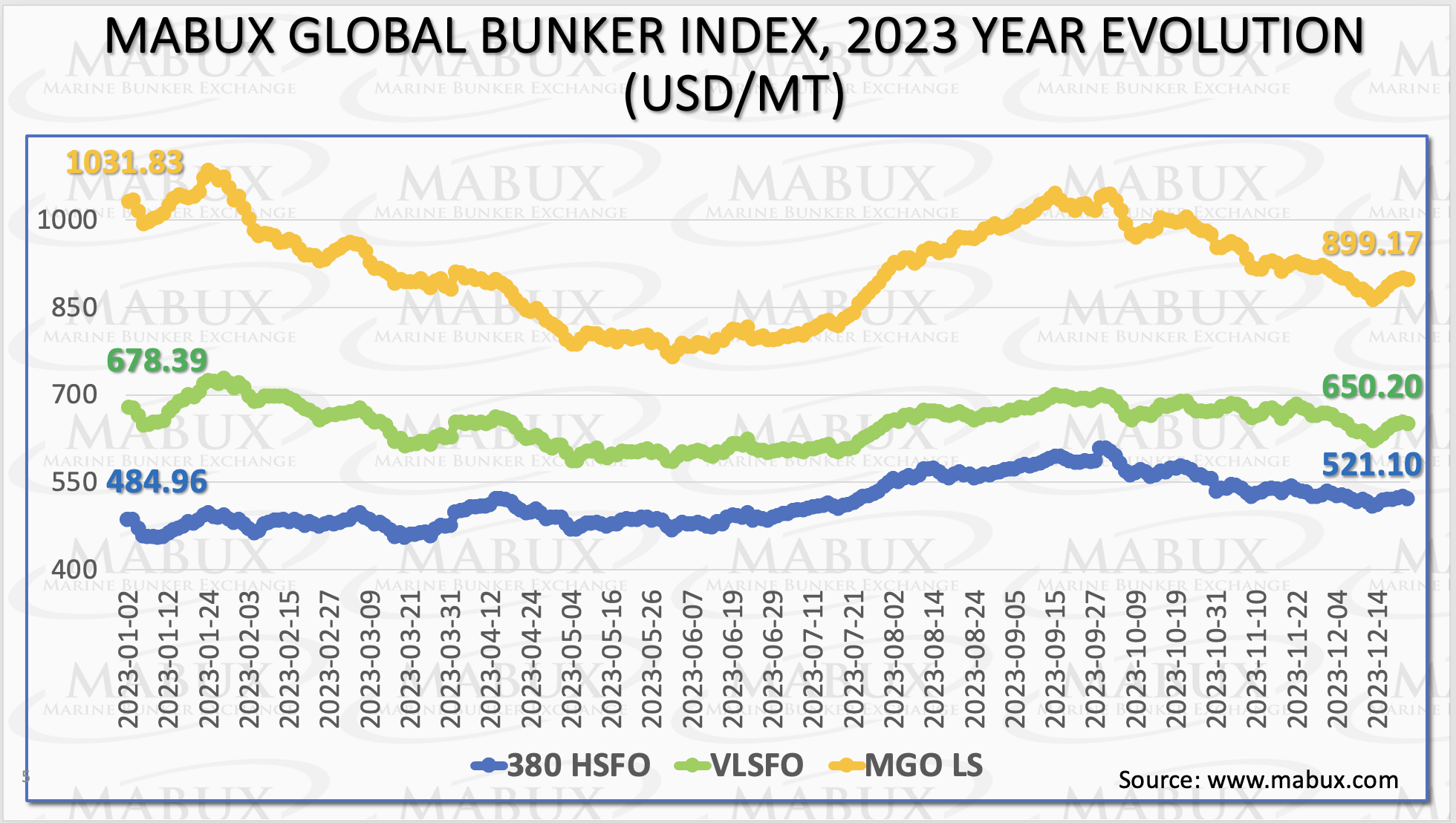 In 2023, the average global bunker indices for 380 HSFOs increased by 8.5%, while VLSFO and MGO LS decreased by 7.2% and 22.0%, respectively. Notably, the highest growth rates for 380 HSFO prices occurred in Asia and Oceania, with an average increase of 22.5%, while South America recorded a decrease of 10.9%.
In 2023, the average global bunker indices for 380 HSFOs increased by 8.5%, while VLSFO and MGO LS decreased by 7.2% and 22.0%, respectively. Notably, the highest growth rates for 380 HSFO prices occurred in Asia and Oceania, with an average increase of 22.5%, while South America recorded a decrease of 10.9%.
VLSFO prices declined globally, with Central America experiencing the most significant reduction at 17.2%, and Africa/Middle East being the sole region where VLSFO prices increased by an average of 4.4%. MGO LS prices decreased across all regions, with Central America leading with a maximum reduction of 32.3%, and South America showing a marginal decrease of 0.1% on average.
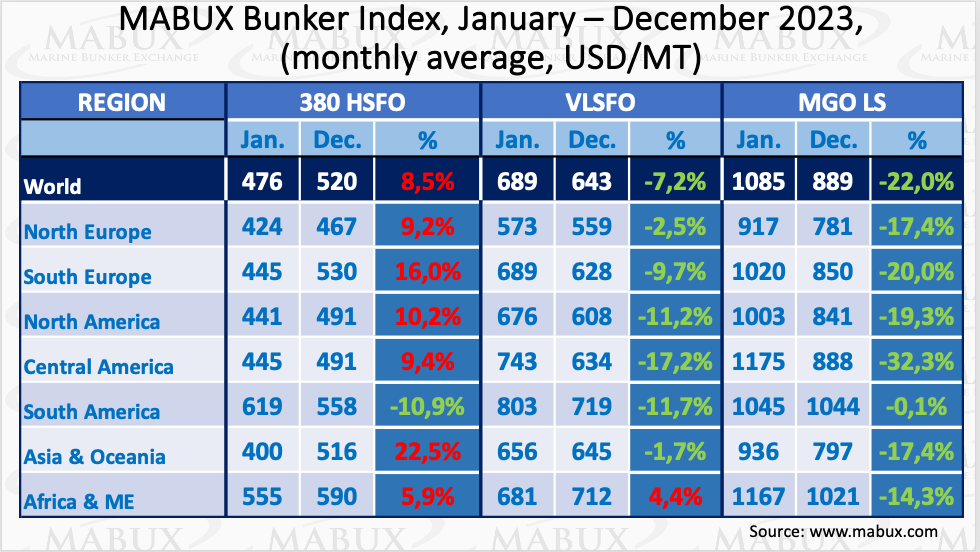 The Global Scrubber Spread (SS) — the price difference between 380 HSFO and VLSFO — witnessed a sharp rise to $236.46 in early February 2023, followed by a gradual decline to $129.00 by year-end. This proximity to $100 (SS Spread breakeven) indicates significant stabilization in the bunker market.
The Global Scrubber Spread (SS) — the price difference between 380 HSFO and VLSFO — witnessed a sharp rise to $236.46 in early February 2023, followed by a gradual decline to $129.00 by year-end. This proximity to $100 (SS Spread breakeven) indicates significant stabilization in the bunker market.
In Rotterdam, the SS Spread fell below $100 in April, hitting a historical low of $25 on September 14, and subsequently rebounded to approach the $100 mark by December 25. In Singapore, the SS Spread began the year at highs ($279 on February 3, 2023), experienced a sharp correction to $48 on August 3, and gradually recovered to levels of $135-$150 by the year’s end.
The consistently stable SS Spread exceeding $100 contributed to the profitability of scrubber installations. DNV reported a total of 5,095 ships with scrubbers installed (in operation and on order) in 2023, up from 4,807 in 2022 and 4,581 in 2021.
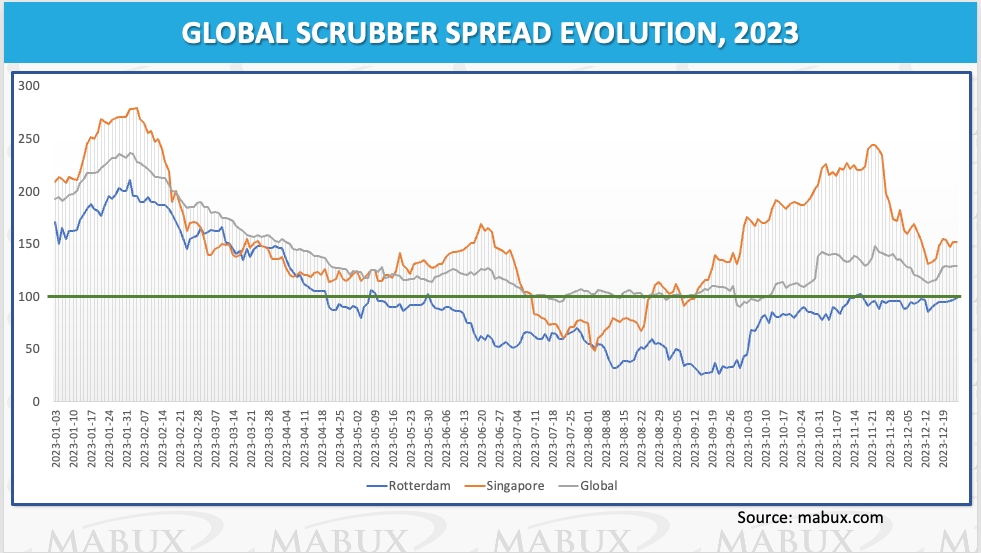 In 2022, liquefied natural gas (LNG) briefly lost its competitive edge against traditional bunker fuels due to sharp price increases driven by weather-related factors, exceptionally high demand in Asia, and a simultaneous shortage of energy resources in Europe.
In 2022, liquefied natural gas (LNG) briefly lost its competitive edge against traditional bunker fuels due to sharp price increases driven by weather-related factors, exceptionally high demand in Asia, and a simultaneous shortage of energy resources in Europe.
However, in 2023, LNG has reclaimed its status as the most favored alternative bunker fuel.
Despite a significant price disparity between LNG and MGO LS in the first half of 2023 (reaching 448 USD in the port of Sines, Portugal), this gap not only leveled out but also tilted in favor of LNG by the year’s end. Specifically, as of December 20, 2023, LNG as a bunker fuel in the port of Sines was quoted at 117 USD less than MGO LS.
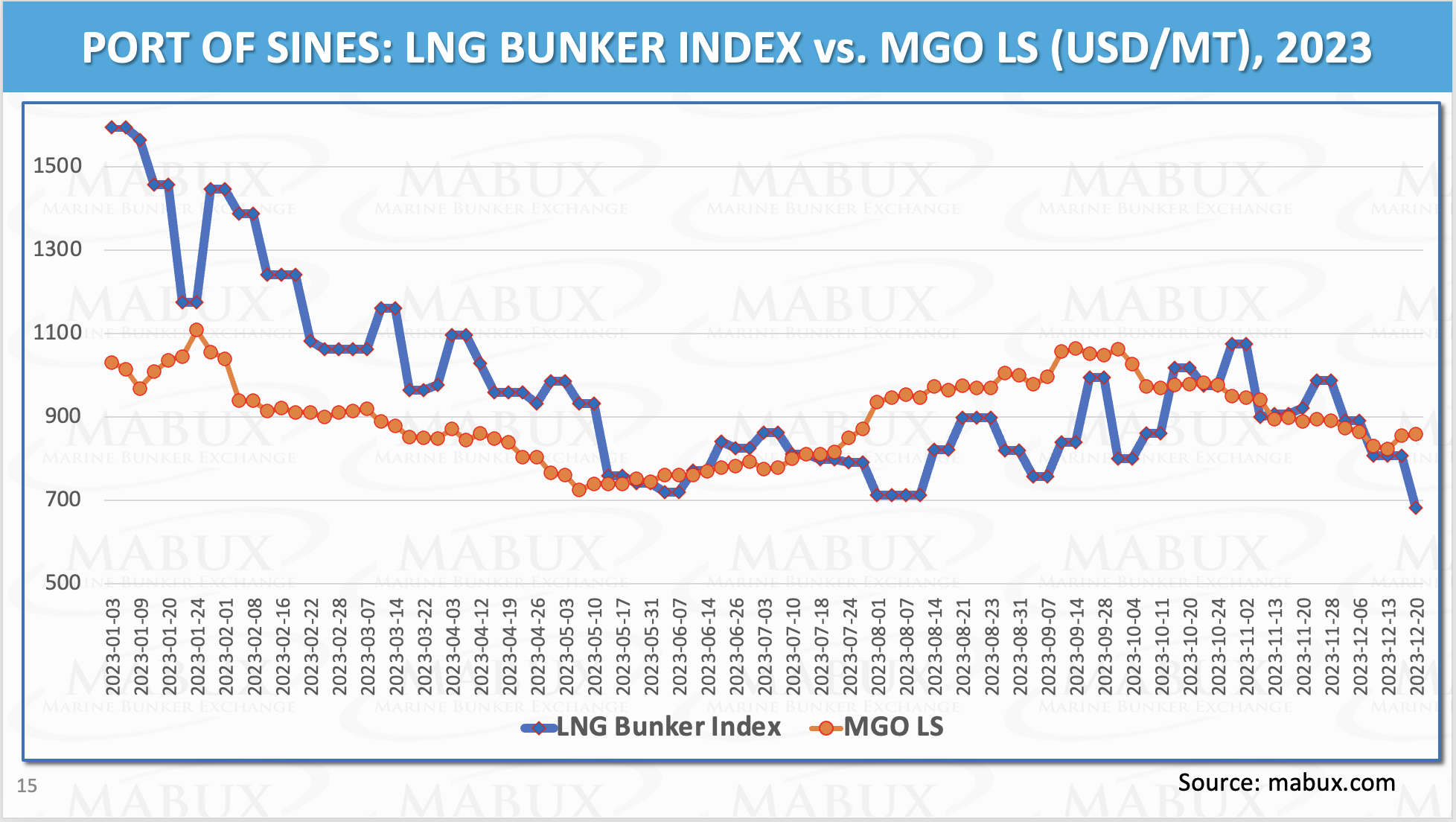 Overall, we anticipate that the stabilization trends observed in the global bunker market throughout 2023 will persist in the medium term. Meantime, drastic shifts in bunker fuel demand appear unlikely.
Overall, we anticipate that the stabilization trends observed in the global bunker market throughout 2023 will persist in the medium term. Meantime, drastic shifts in bunker fuel demand appear unlikely.
Source: MABUX

